Small businesses in Belgium face unique challenges and opportunities when improving their online visibility. Optimizing for search engines is a critical step in connecting with local customers and driving growth.
TLDR:
Effective SEO for small businesses in Belgium involves focusing on local search optimization, leveraging social proof, and building a strong website foundation. By implementing these strategies, businesses can enhance their search engine rankings and attract more customers.
What We Will Cover:
- The importance of local SEO for Belgian businesses
- How to optimize your website for search engines
- Using Google My Business for local visibility
- Keyword strategies tailored to Belgian audiences
- Mobile optimization and website performance
- Link-building techniques for small businesses
- Tracking and improving your SEO efforts
Why Is Local SEO Important for Belgian Small Businesses?
Local SEO is essential for businesses in Belgium that rely on customers in specific areas. This includes restaurants, cafes, retail stores, and service providers. Local optimization ensures your business appears in relevant searches within your region. For instance, if someone in Antwerp searches for “best coffee shops,” local SEO tactics can help your shop appear among the top results.
Local search is particularly impactful in Belgium due to its mix of urban hubs and smaller towns. Consumers in cities like Brussels, Antwerp, and Ghent often rely on search engines to find nearby services. Effective local SEO ensures visibility for these searches, directly translating to higher foot traffic and sales.
Setting Up Google My Business (GMB)
One of the first steps in local SEO is creating and optimizing a Google My Business profile. GMB allows small businesses to appear in Google Maps searches, local search results, and on the knowledge panel of the search engine.
Steps to Optimize GMB:
- Claim and verify your business listing.
- Add accurate business information, including name, address, phone number, and operating hours.
- Upload high-quality photos of your business premises or products.
- Encourage customers to leave reviews and respond promptly to their feedback.
- Use posts and updates to share promotions or announcements.
A fully optimized GMB profile also helps you compete with larger businesses by positioning your company as a trusted local service provider. Belgian consumers value transparency, so ensure that your listing is accurate and regularly updated.
Choosing Keywords That Work for Your Audience
Keyword research is crucial for creating content that resonates with your target audience. Belgian small businesses should consider using both short-tail and long-tail keywords. For example, instead of just “plumber,” use “plumber in Brussels for emergency repairs.” This targets specific search intent, making it easier to attract potential customers.
Focusing on these keywords ensures your content aligns with user searches while avoiding overstuffing. Tools like Google’s Keyword Planner, Ahrefs, or SEMrush can assist in identifying terms with high search volumes and low competition.
Optimizing Your Website
A well-optimized website is the backbone of any SEO strategy. Ensure your website is user-friendly, mobile-responsive, and has clear navigation. Focus on the following aspects:
On-Page SEO:
- Add relevant keywords naturally in headings, subheadings, and content.
- Use descriptive alt text for all images.
- Include a meta title and description for every page, incorporating primary keywords.
- Create clear and engaging calls-to-action (CTAs) on every page.
Technical SEO:
- Use fast-loading website themes or designs.
- Implement HTTPS to ensure your site is secure.
- Optimize for Core Web Vitals, including load time, interactivity, and visual stability.
- Set up an XML sitemap to help search engines crawl your site effectively.
Content Strategies for Belgian Small Businesses
Creating high-quality, relevant content is key to engaging your audience and improving your rankings. Focus on blog posts, guides, or FAQs that address common concerns. For instance, a local bakery could create content on “Best desserts to try in Ghent.”
Content Ideas:
- “Top Restaurants in Antwerp: A Local’s Guide”
- “How to Choose the Right Handyman in Brussels”
- “Eco-Friendly Shopping Tips for Belgian Consumers”
Regularly updating your blog with these topics keeps your website fresh and increases your chances of ranking for various search queries.
Mobile Optimization
Mobile devices dominate online searches, making mobile optimization a priority. Google’s algorithm also favors mobile-friendly websites.
Tips for Mobile Optimization:
- Use responsive design that adapts to different screen sizes.
- Ensure buttons and links are easy to click on smaller devices.
- Test your website on multiple mobile devices for usability.
- Avoid intrusive pop-ups that hinder user experience on mobile devices.
Belgium’s high smartphone penetration rate makes mobile optimization even more critical for local businesses.
Building Local Backlinks
Local backlinks are links from websites within Belgium that point to your site. These links improve your domain authority and enhance credibility.
How to Earn Local Backlinks:
- Partner with local organizations or charities for sponsorship opportunities.
- Get listed in Belgian business directories.
- Collaborate with local bloggers or influencers to review your products or services.
- Offer guest posts to Belgian-based websites in your niche.
Leveraging Social Media for SEO
Social media platforms like Facebook and Instagram play a significant role in SEO. While not a direct ranking factor, these platforms help amplify your content and bring traffic to your site.
Strategies for Small Businesses:
- Share blog posts and website updates on your social channels.
- Run local promotions targeting Belgian users.
- Engage with followers through comments and messages.
Consistency in posting and interacting on these platforms helps establish your brand and attract a loyal audience.
Monitoring Your SEO Performance
Tracking your progress ensures you know which strategies work and where adjustments are needed. Use tools like Google Analytics and Google Search Console for this purpose.
Metrics to Monitor:
- Organic traffic
- Bounce rate
- Conversion rate
- Keyword rankings
Regularly reviewing these metrics allows you to refine your approach and focus on what delivers results.
Real-Life Example
A small Belgian boutique in Brussels started focusing on local SEO by optimizing their GMB profile, adding high-quality photos, and encouraging reviews. Within six months, their foot traffic increased by 30%, and online bookings saw a significant uptick.
Advanced SEO Tactics for Small Businesses
As your business grows, consider implementing advanced SEO tactics such as:
- Structured Data Markup
Helps search engines understand your content better, leading to rich snippets in search results. - Voice Search Optimization
Tailoring content for natural language queries often used in voice searches. - Video SEO
Creating and optimizing videos for platforms like YouTube, which can also rank on Google.
FAQs
1. What is the average cost of SEO for small businesses in Belgium?
SEO costs can vary, but small businesses typically invest between €500 to €2,000 monthly, depending on the complexity of the project and the services offered.
2. How long does it take to see results from SEO?
Most small businesses start seeing measurable improvements in three to six months with consistent efforts.
3. Can I do SEO for my business without hiring an expert?
Yes, tools like Google My Business, free keyword research tools, and online guides can help you start. However, for advanced strategies, professional help may be beneficial.
By implementing these strategies, small businesses in Belgium can improve their online visibility, connect with local customers, and grow sustainably.







